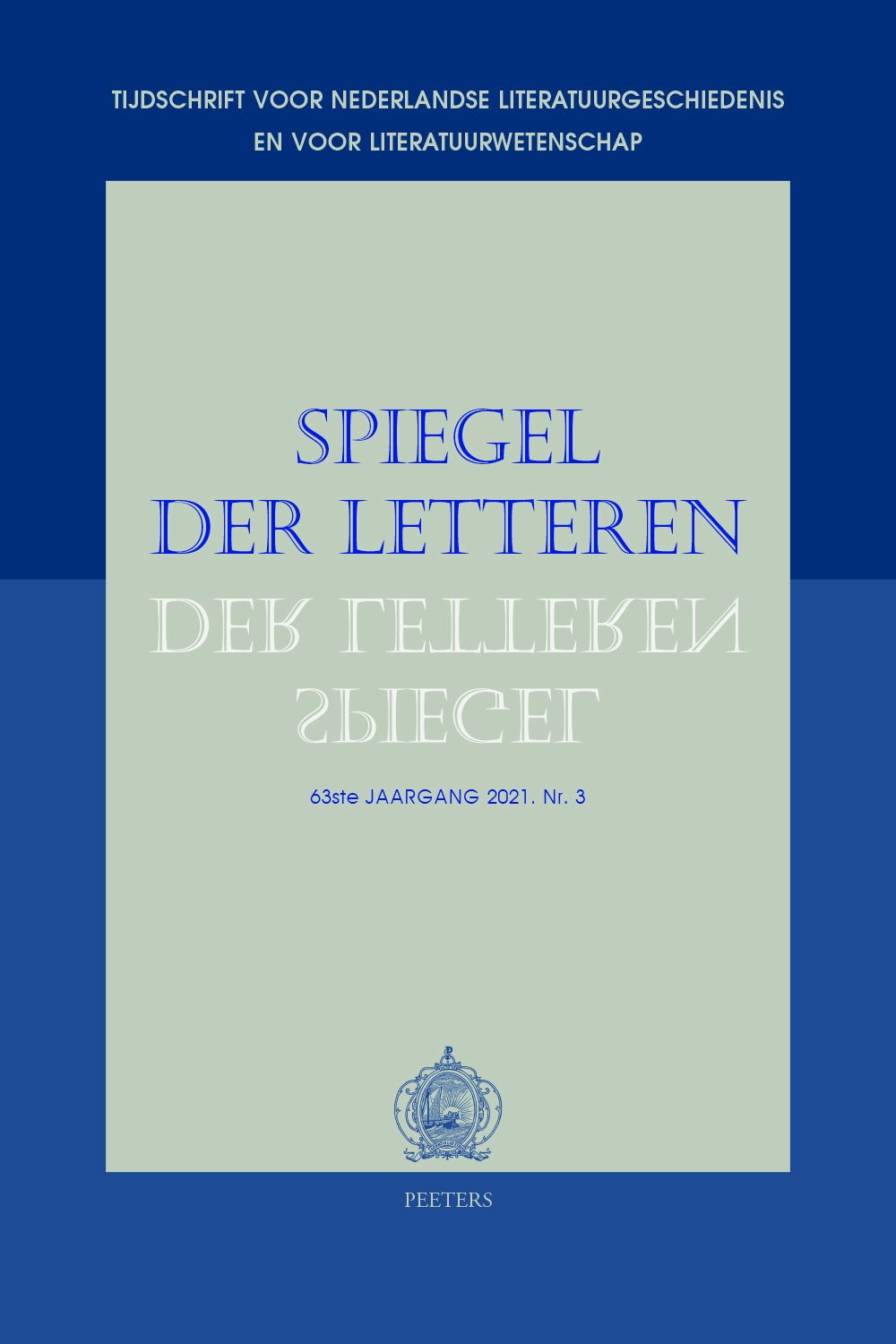 previous article in this issue previous article in this issue | next article in this issue  |

Preview first page |
Document Details : Title: De lier als wapen Subtitle: Dichten, doden en (ver)zwijgen in Bellamy's Vaderlandsche Gezangen (1782-1783) Author(s): VAN DER HAVEN, Kornee Journal: Spiegel der Letteren Volume: 56 Issue: 1 Date: 2014 Pages: 3-26 DOI: 10.2143/SDL.56.1.3011359 Abstract : Due to the frequent use of commonplaces, scholars have characterized Dutch 18th-century poetry about the fatherland as trivial and ‘empty’. While reading one of the most famous collections of Dutch patriotic poetry – Jacobus Bellamy’s Vaderlandsche Gezangen (1782-1783) – this article critically examines this supposed ‘emptiness’ of the patriotic poem. The non-referentiality of modern patriotic discourse as defined by Elaine Scarry in The Body in Pain (1985) will be the starting point of this examination. How could concepts like ‘Fatherland’ and ‘Freedom’ hide the (bodily) reality behind the heroic ‘death for the fatherland’? To answer that question, two discursive strategies that seem to apply to the poetry of Bellamy are analyzed: the dissipation of words and a strategy of ‘overnaming’ on the one hand and a strategy of silence on the other. The explicit presence of the poetic subject in Bellamy’s poems and the reciprocity of patriotic inspiration between poet and reader give possible explanations for these frictions between overpowered speech and silence in Vaderlandsche Gezangen. |
|


